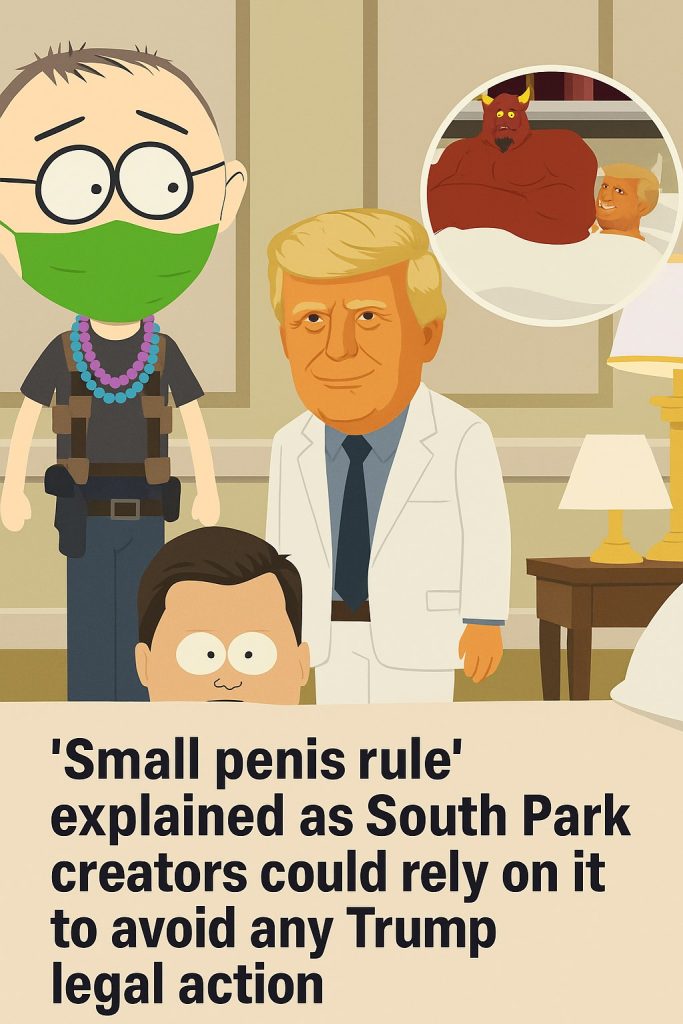In a clever twist that is catching the attention of fans and legal experts alike, the creators of the iconic animated series South Park are reportedly relying on a little-known legal strategy known as the “small penis rule” to shield themselves from any potential legal action by former President Donald Trump amid their ongoing satirical portrayals.
The “small penis rule” is an informal, humorous legal concept long discussed in entertainment circles but rarely acknowledged openly. Essentially, it hinges on the premise that depicting an individual with an unflattering and deeply personal physical characteristic—in this case, a small penis—provides a form of legal protection against defamation claims. The rationale is that few people would claim to have such a trait, making it difficult to argue the portrayal is a direct personal attack or inaccurate representation.
Creators Trey Parker and Matt Stone have made no secret of their intent to lampoon prominent public figures, especially Donald Trump, throughout South Park’s long run. Their portrayal of Trump has included a mix of absurd exaggeration and biting satire that often pushes comedic boundaries. With Trump’s history of aggressively pursuing legal action against critics, rumors swirled about whether Parker and Stone might face lawsuits over their content, especially as the 2024 election cycle fuels politically charged media environments.
However, the application of the “small penis rule” appears to offer a smart safeguard. By incorporating deliberate caricatures with explicitly exaggerated personal traits—traits few would claim as true—the creators establish a strong foundation for fair use and parody protections under U.S. law. This helps them avoid allegations that their work constitutes harmful defamation or damages Trump’s reputation beyond comedic intent.
Legal experts note that parody and satire have a robust defense under the First Amendment, particularly when targeting public figures, who are required to prove actual malice in defamation lawsuits. Introducing such a provocative but unlikely characteristic creates an extra buffer, effectively signaling the audience that the portrayal is a farcical fabrication rather than a realistic depiction.
While it might sound like a tongue-in-cheek tactic, this loophole is grounded in sound legal reasoning. The “small penis rule” has been informally referenced in Hollywood and legal communities as a way writers and producers navigate the tricky waters of parodying real people without risking costly lawsuits. In the current media climate, where celebrities and political figures are quick to sue over perceived slights, such strategies are invaluable.
Fans of South Park and free speech advocates have praised the creators’ commitment to satire as a cultural guardrail that challenges power and hypocrisy. The show’s ability to push boundaries through wit and legal savvy ensures it remains relevant and fearless—even under the shadow of threats that might silence others.
In sum, the “small penis rule” exemplifies how satire programs such as South Park cleverly balance humor, social commentary, and legal protections to continue producing bold content. As the 2024 election year unfolds, this little-known loophole might just keep the biting satire coming without fear of litigation from high-profile targets like Donald Trump.


